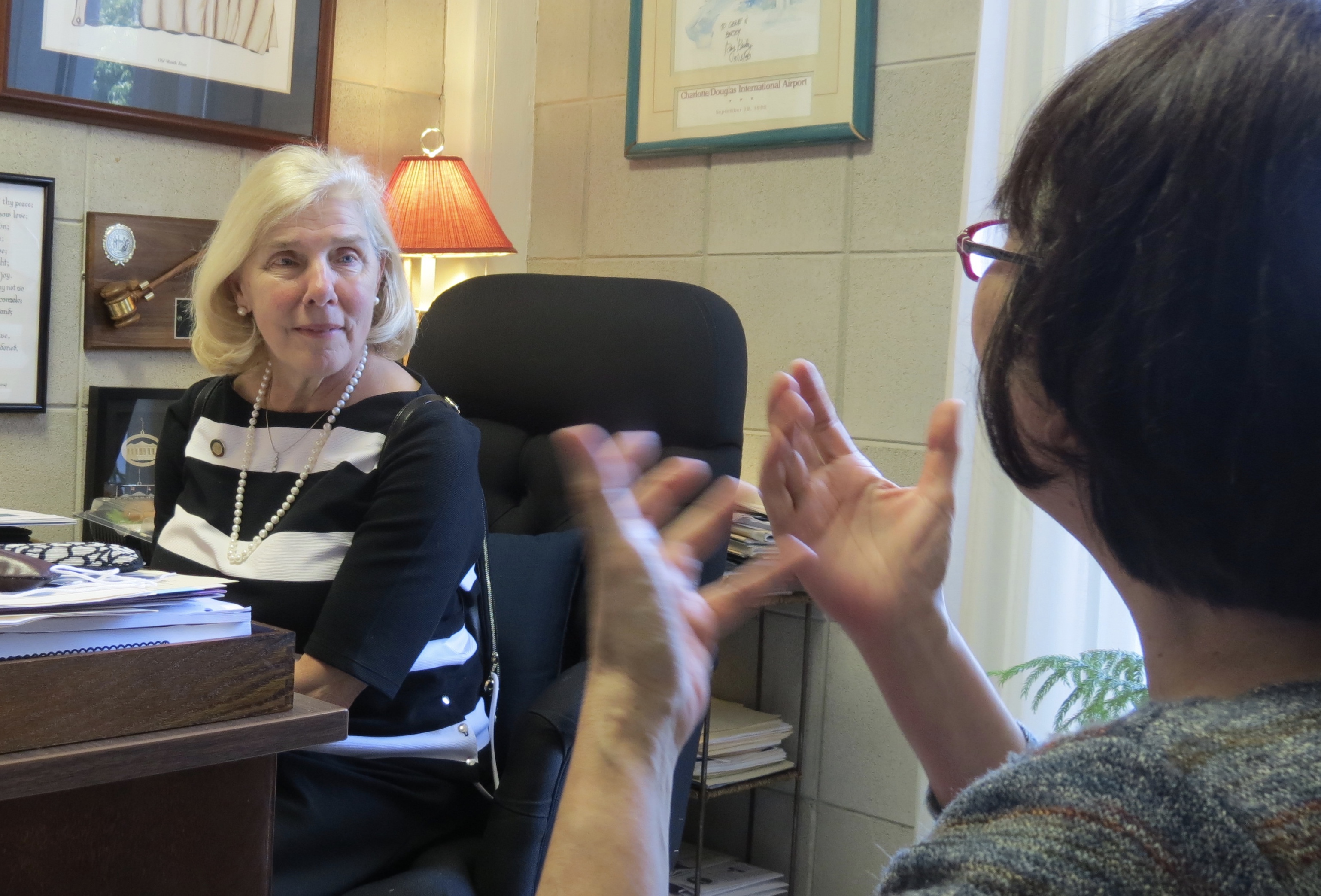Call to Action: Season’s Meetings! Five Easy Steps of Building a Relationship with an Elected Official

Many of you have just put away the ghosts and spider webs and are enjoying the vibrant foliage as you make plans to be with loved ones on Thanksgiving Day. All the while gift shopping and colored lights loom around the corner and you know the Holiday Season is upon us. Now is the time to be grateful for all that you have and to engage in the fall tradition that dates back to the early days of this great nation… make a meeting with your elected representative.
Making appointments with elected officials at all levels of government while the leaves are falling and being sure to have those conversations before the buds are back on the trees is the best way to be sure your message is reaching your representative at the right time. Much of what we advocate for requires some amount of government spending and work on budget at every level of government happens in the spring. This means that if you can speak to the value of the arts and the impact they have on the people in your community now, that seed will have time to take root and bear fruit in the spring.
Step 1: Making the Meeting
- Who to Meet – You can find your NC and US Representatives here. Go to the web sites for your City, County, and Local School System to find you representation locally.
- How to Schedule – Making an appointment with an elected official is like making an appointment with anyone else. Call or email the official or their staff, identify yourself as a constituent, and tell them that would like to meet with the official. Offer to come to their office or meet somewhere convenient to them, like a coffee shop. (Note: You are generally not allowed to buy them coffee or lunch or well…anything. They need to pay for themselves.)
- Polite and Persistent – Lawmakers, Officials and their staffs are very busy all year. You may need to call or email (phone calls may be returned faster) several times to get a response. Follow up every week or so. Do NOT get frustrated and always be POSITIVE AND POLITE. Your relationship with an official’s staff may set the tone for the relationship with the official. Also, if you end up taking a meeting with an assistant or staff person that is OK. While it may not be optimal, they do relay that information. Treat them as if they were your representative.
Step 2: Taking the Meeting, Delivering the Message
- Simple – Some small talk is OK, but avoid issues you are not there to discuss. Stick to the weather, not how they voted on an unrelated issues last session. You want to be sure to keep the conversation on the topic you came to discuss. Topics can include:
- How the ARTS affect YOU – Tell your story about the arts and how it affects you. Be concise and clear, but also thorough. Know what you want to say before the meeting.
- How the ARTS affect YOUR LOCAL COMMUNITY – Tell the stories of the official’s constituents (voting age or not) whose lives are touched by the arts and how.
- How the ARTS affect YOUR LOCAL ECONOMY – Your Local Arts Council will probably be able to provide or help you find information about the economic impact of the arts in your community. Many cities, counties and regions in North Carolina have participated in national studies and have data for each community.
- INVITE them to Participate – Invite the official attend arts events in your community. You can’t offer them free entry to paid events, but you can make sure they meet artists, Board Members or other VIPs while attending. If they come: GREAT, if not: THAT’S OK.
- What do you want? – Arts NC will ALWAYS be advocating at the state level for NC Arts Council Grants that reach all 100 Counties and equitable access to Comprehensive Arts Education. Voicing your support for those items at the state level is VERY helpful. Local Arts issues vary, but usually center on non-profit arts funding or policy and budget allocations for Arts Education. Projects such as Arts Centers require local advocacy also.
- Inclusive – Be sure to speak about the arts as it affects people of all ages, races, ethnicities, religions and political affiliations. The ARTS ARE NON-PARTISAN. Also be respectful and open-minded to opinions expressed by the official that you may not agree with. You do not have to agree on everything, but you need to be open to hearing opposing viewpoints
- Positive – Always be patient, polite, and positive. It is not just the right way to treat elected officials- it is the right way to treat everybody. It is especially important if you disagree with an official to do so in a positive manner.
Step 3: Thanking the Official
ALWAYS thank the elected official for their TIME and SERVICE. It is hard work and a public service to represent you in government. Showing an appreciation of that is important.
- Notes – There is nothing more personal than a hand written and mailed Thank You Note.
- Letters – Everybody likes to get mail, a nice printed letter, signed by hand, is appreciated too.
- Emails – Email may not get through, but it is better than no thank you at all.
Step 4: Being Ready for Action
- When to Act – Arts NC will send Calls Action when it is time to act on a State or Federal issue. We also have our annual Arts Day Conference (May 22& 23, 2018) where you can join your voice with others behind a unified message that is Simple, Inclusive, and Positive.
- What to Do – When the time is right to reach out to your elected official for action, your options are as follows in order of most effective to least:
- Face-to-face meeting with official or staff
- Phone call with official or staff
- Mail a letter (if there is time)
- Send an email.
Step 5: Building the Relationship
- Stay in Touch – Invite them to your events, make other meetings, send a note or email to check in, be sure to say hello when you see them. Treat them like a friend and they will become one.
- Stay Informed – If you know your issue and the events that effect it, then you will always be prepared to have the conversation. You may become the resource your official calls on.
- Say Thank You – Say thank you after the budget passes, say thank you when you see them at the grocery store, say thank you after the session. Gratitude is always well-received.
Step 6: Repeat Step 1 when you see PUMPKINS!
This work will never stop. There will be gains and setbacks. The more you do it, the more effective you will become. The more people that engage, the faster we can make real change. If you believe in the ARTS, your advocacy should be a source of empowerment and strength, and your way to impact the world.

